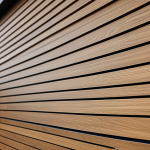Maximizing Solar Energy for Efficient Pool Heating in the UK: The Ultimate Guide
Why Solar Energy for Pool Heating?
When it comes to maintaining a warm and inviting swimming pool, especially in the UK where the weather can be quite unpredictable, solar energy emerges as a highly efficient and eco-friendly solution. Solar pool heating systems harness the free energy from the sun to warm your pool water, reducing your reliance on traditional heating methods and lowering your energy bills.
“Solar pool covers reduce the running costs of these additional heating methods by adding and retaining free heat from the sun and minimizing water evaporation,” explains an expert from the pool industry.
In the same genre : Essential Tips for Safeguarding Your UK Home”s Swimming Pool Against Child Accidents
Understanding Solar Pool Heating Systems
Solar pool heating systems are designed to capture solar energy and transfer it to your pool water. Here’s a breakdown of how these systems work:
Components of a Solar Pool Heating System
- Solar Collectors: These are the panels that absorb solar energy. They are typically installed on a roof or a ground-mounted rack and come in various types, including glazed and unglazed collectors.
- Pumps: Solar-powered pumps or traditional pumps are used to circulate the pool water through the solar collectors.
- Valves and Controls: These components direct the flow of water through the system and regulate the temperature.
How It Works
- Pool water is pumped through the solar collectors, where it absorbs the thermal energy from the sun.
- The heated water is then returned to the pool, maintaining a warm and comfortable temperature.
- The system can be automated with temperature sensors and valves to ensure optimal performance.
Choosing the Best Solar Panels for Your Pool
When selecting solar panels for your pool heating system, several factors need to be considered:
Have you seen this : Top inflatable baby floats for summer water adventures
Efficiency and Power Output
- Look for panels with high efficiency rates. For example, monocrystalline solar panels are known for their efficiency, even in low-light conditions.
- The power output of the panels should match your pool’s heating needs. For instance, a larger pool might require multiple high-wattage panels.
Weight and Structural Integrity
- Ensure that your roof or pergola can support the weight of the solar panels. Some panels, like the Eurener 430W solar panels, can be quite heavy, weighing around 23kg per panel.
Cost and Budget
- While high-quality panels may be more expensive, they offer long-term benefits. For example, the Eurener 430W solar panels cost between £230 to £690 but provide high efficiency and durability.
- More affordable options like the Renogy 200W solar panels are also available, costing between £140 to £215 per panel.
Solar Pool Covers: An Additional Layer of Efficiency
In addition to solar heating systems, solar pool covers can significantly enhance the efficiency of your pool heating.
Benefits of Solar Pool Covers
- Heat Retention: Solar pool covers help retain the heat gained during the day, reducing heat loss overnight.
- Water Evaporation Reduction: By covering the pool, you minimize water evaporation, which is a major factor in heat loss.
- Cost Savings: By reducing the need for additional heating methods, solar pool covers can lower your energy bills.
Installing Solar Panels on a Pergola
If you have a pergola in your backyard, it can be an ideal location for installing solar panels to power your pool heating system.
Structural Considerations
- Ensure your pergola can support the weight of the solar panels. Lightweight options like the Solbian’s SP series, which weigh between 0.8 and 2kg per panel, might be more suitable for weaker structures.
Energy Production
- The amount of power generated depends on the size of your pergola and the number of solar panels installed. For instance, a 3kW solar panel system consisting of 12 solar panels would require about 22m² of usable space.
Financial Incentives and Grants
Investing in solar energy for your pool heating can be more affordable than you think, thanks to various financial incentives and grants available in the UK.
Solar VAT Discount
- Everyone is eligible for the 0% VAT rate on solar panel systems, which can save you around £450 on a 3kWp solar and battery system.
Home Upgrade Grant (HUG)
- If you are in a low-income, energy-inefficient household not connected to the gas grid, you might qualify for free or heavily discounted solar panels through the Home Upgrade Grant.
Other Grants
- The ECO4 scheme and the Welsh Government Warm Homes Programme also offer opportunities for free or discounted solar panels for eligible households.
Practical Tips for Maximizing Solar Energy
Here are some practical tips to ensure you get the most out of your solar pool heating system:
Optimal Panel Placement
- Ensure your solar panels are placed in a location that receives maximum sunlight throughout the day. For pool pumps, this often means positioning the panels poolside and directing them towards the sun.
Regular Maintenance
- Regularly clean and inspect your solar panels to ensure they are functioning at their best. Dirt and debris can significantly reduce the efficiency of your solar panels.
Combining with Other Systems
- Consider combining your solar pool heating system with other energy-efficient solutions like air-source heat pumps for comprehensive energy savings. Air-source heat pumps can deliver up to three times more heat energy than the electrical energy they consume, making them a complementary choice.
Example of a Successful Installation
Let’s consider an example of a homeowner in the UK who decided to install a solar pool heating system:
Case Study
- Sarah, a homeowner in London, installed a solar pool heating system on her pergola. She chose the Eurener 430W solar panels due to their high efficiency and durability.
- Sarah also invested in a solar pool cover to retain the heat gained during the day.
- With the 0% VAT discount and some additional savings from her energy provider, Sarah was able to reduce her upfront costs significantly.
- Since the installation, Sarah has noticed a significant reduction in her energy bills and enjoys a warm and comfortable swimming pool throughout the summer months.
Maximizing solar energy for pool heating in the UK is a smart and sustainable choice. By understanding the components of solar pool heating systems, choosing the right solar panels, and taking advantage of financial incentives, you can enjoy a warm and inviting swimming pool while reducing your carbon footprint and energy bills.
Here is a detailed bullet point list summarizing the key points:
- Components of a Solar Pool Heating System:
- Solar collectors
- Pumps
- Valves and controls
- Choosing the Best Solar Panels:
- Efficiency and power output
- Weight and structural integrity
- Cost and budget
- Solar Pool Covers:
- Heat retention
- Water evaporation reduction
- Cost savings
- Installing Solar Panels on a Pergola:
- Structural considerations
- Energy production
- Financial Incentives and Grants:
- Solar VAT discount
- Home Upgrade Grant (HUG)
- Other grants like ECO4 and Welsh Government Warm Homes Programme
- Practical Tips:
- Optimal panel placement
- Regular maintenance
- Combining with other systems like air-source heat pumps
Comparative Table: Solar Panel Options for Pool Heating
| Solar Panel Model | Efficiency Rate | Power Output | Weight | Cost |
|---|---|---|---|---|
| Eurener 430W | 22% | 430W | 23kg | £230-£690 |
| Renogy 200W | 19.2% | 200W | 12kg | £140-£215 |
| Solbian’s SP series | Varies | Varies | 0.8-2kg | Varies |
By following this guide, you can make an informed decision and maximize the benefits of solar energy for your pool heating needs in the UK.













